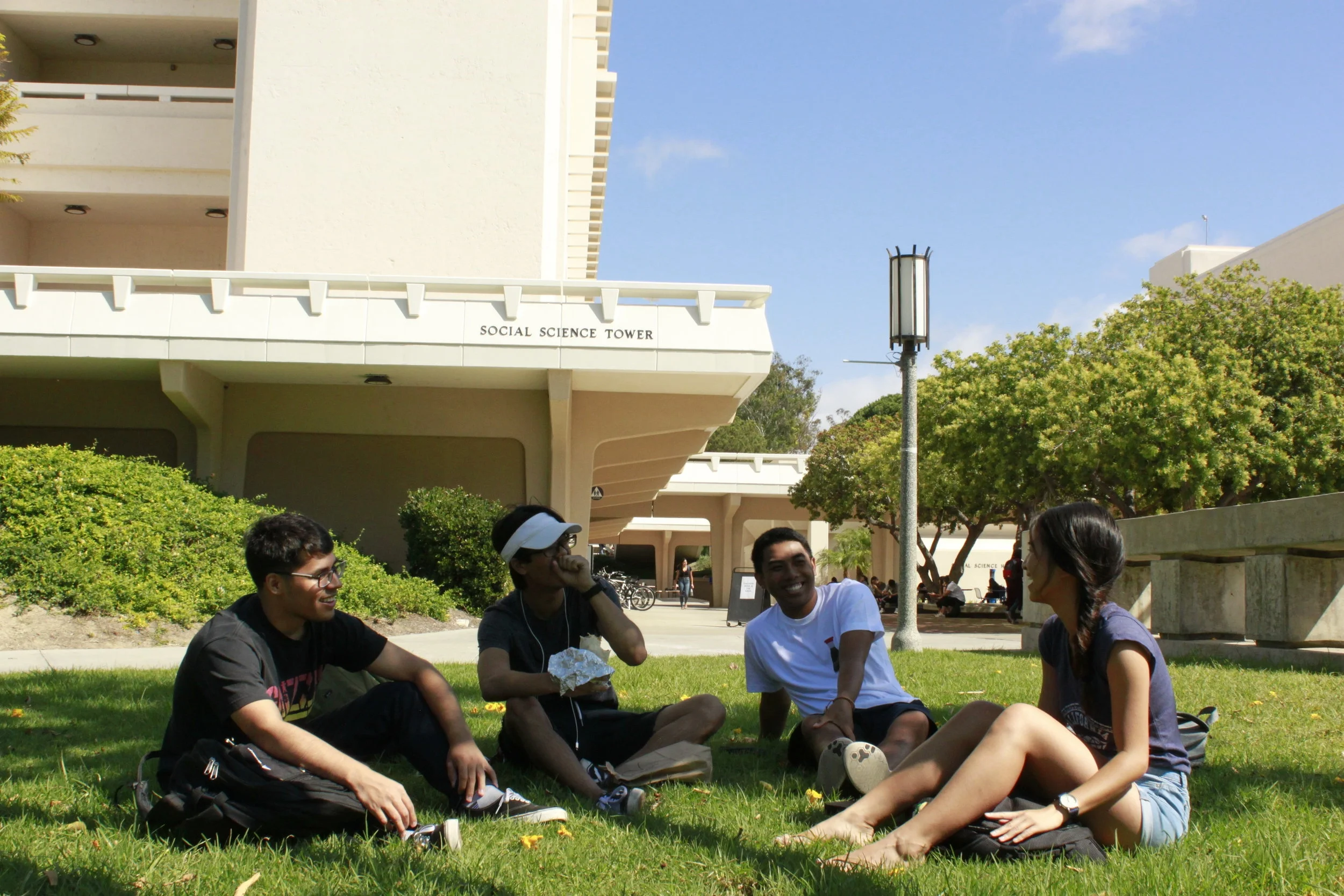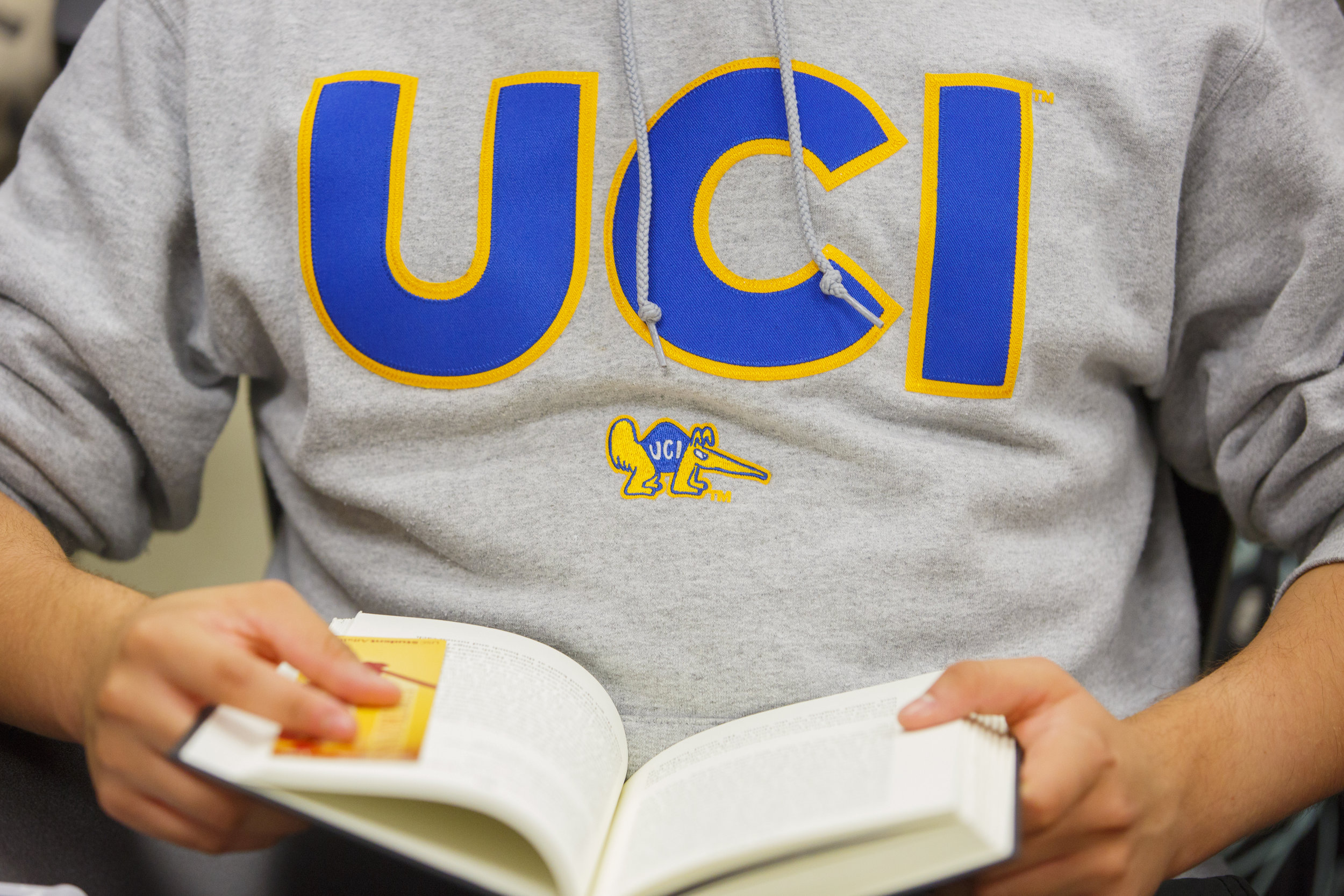The Challenges & Rewards of Being A Mentor in the DIRHA Program at UC Irvine
Dorilyn Toledo (she/they) is a graduating senior double majoring in Political Science and Social Ecology. They lived all over Orange County but consider their hometown to be in the current city of Santa Ana, California.
Throughout their undergraduate career, they have been involved with student affairs on-campus through various student government commissions and advocating for University of California Student Association’s Racial Justice Now campaign. Off campus, they worked as a Higher Education Student Assistant at their alma mater through the Early Academic Outreach Program (EAOP). They’ve volunteered with the Chicano Latino Youth Leadership Project (CLYLP) and the Orange County Asian and Pacific Islander Community Alliance (OCAPICA) which both center community empowerment, education, and civic engagement. After being a Congressional Hispanic Caucus Institute (CHCI) Intern, they now work for their local city government in Santa Ana, and write for Her Campus Media and edit for its UC Irvine chapter.
They are very passionate about education, so they took on the role of facilitator for the Diversity, Inclusion and Racial Healing Ambassador (DIRHA) program at the UCI School of Social Sciences. I wanted to learn more about the responsibilities Dorilyn holds as a mentor to local high school students, and their work in community building and commitment to creating safe spaces for students:
Please describe your role as a DIRHA mentor. How did you hear about this mentoring opportunity? Why did you decide to apply? How does the role align with your personal or professional goals?
“As a mentor, I work with Dr. Teresa Neighbors through the UCI School of Social Sciences. The university sought to create a Diversity, Equity, and Inclusion (DEI) program to help create a safe learning environment for high school students while they engage in social justice topics of interpersonal and systemic oppressions.
Dr. Neighbors hired me after I completed her three-quarter course series: Diversity and Student Empowerment (SOC SCI 189). The series fulfills the Social Science major requirements. We dive into social justice topics and get to know the cohort for the first two quarters to gear up for the spring. In small groups, we conduct research, draft a policy proposal, and/or plan a program. It’s basically the undergraduate version of DIRHA.
She has another course series called Deconstructing Diversity Initiative (DDI) where students will investigate institutional and contextual forces and the development and implementation different strategies for improving race relations. Students also have the opportunity to travel to Chicago, Washington D.C., Atlanta, Montgomery, and New Orleans. The course also fulfills the school requirements and serves to provide ample DEI training to become a DIRHA mentor.
The opportunity is always publicized on student-ran UCI newsletters, like Social Science Academic Research Center (SSARC) or the Cross Cultural Center (CCC), at the beginning of Fall Quarter. Or feel free to email her directly! DIRHA is always looking for more people to get involved.
I like working with students. Supporting them, challenging them, liberating them. I’m always learning from them, too. We’re building community. It's inherently organizing praxis.
It fits my personal and professional goals because being in education is the most ethical way to work towards liberation and still survive under capitalism.”
What is a typical seminar day like for you? What kinds of projects/responsibilities do mentors and mentees get involved in? Did you receive training to prepare how to navigate sensitive topics and discussions?
“Each mentor works with an assigned high school. In each seminar I get the opportunity to see the five students representing their high school. We’ll have two or three breakout sessions each time we meet. Occasionally, the breakout sessions will be randomized, instead of with their home schools, so the students can interact and learn from others. Mentors mainly serve as discussion facilitators. In the spring quarter, we become research assistants for whatever policy/program/research project the students decide they want to implement at their school.
We have Mentor Meetings scheduled before each seminar. In those meetings, we do check-ins, go over the agenda, and do whatever prep we may need. The mentors ideally already had a year of training with Dr. Neighbors. During the on-boarding process, we complete the mandatory Mandated Reporter training and other necessary trainings to begin working with minors.”
What do you like most/least about being a mentor? What kinds of challenges do you deal with?
“Gen Z is almost chronically online with so much access to information. The biggest challenge is also something I admire — sometimes they have a much deeper understanding of concepts that we’re simply introducing. Basically, they already know! So sometimes I feel obsolete because they can make the job super easy. But I know that I’m there to facilitate and guide. I keep the group focused and energized. I can work with individuals who aren’t sharing as much as the collective is.
As a facilitator, I don’t need to add much, all I need to do is help draw out their personal experiences, then connect that to the theory.
As a mentor, I love learning from them because these kinds of conversations are the foundations for the research that becomes academia and fact. We need to keep connecting with others.”
How do you apply what you have learned in class to your role as a mentor?
“Because these high school students already know so much from social media and from their lived experiences, I occasionally need to bring my college curriculum to the conversation.”
What are you most proud of your work as a mentor? Do you have any favorite memories?
“Last year, I remember our biggest breakthrough as a group was during the Gender and Sexuality Seminar. After virtually seeing each other for months, we felt comfortable enough to “come out” and talk about our queer lives during the high school breakouts. The students shared their experiences and I brought up the term “compulsory heterosexuality” from Adrienne Rich’s seminal essay. I briefly spoke on it and encouraged the students to do more research.
Once we returned to the main room, one of my students immediately raised their Zoom hand to share. They said they loved this discussion, and from my quick blurb, they introduced compulsory heterosexuality to the larger group, remarked how they’ve felt it in their life, then thanked me by name.
I was in awe of their courage to share and their willingness to give me public praise. It was extremely validating and reaffirming of my impact on the students. I knew it was a show of solidarity. I listened and related to them. I helped name their feelings. They helped me by showing they care and understand (and thanked me in front of my employer). It is my favorite memory because it illustrated that we are in community just trying to uplift each other.”
What do you like most/least about this program overall? Any specific factors that have room for improvement? What is something you personally want to improve on?
“I would like to see the program expand — it could even just look like students working on their research/policy/program projects. Sometimes we have guest speakers from the community or focus the seminar is centered around. I think hearing from UCI professors helps these high school students imagine what it would be like to be a college student in lecture and how they can strengthen their skills in research and policy.
This is my second year on-board; I requested to work with the same high school so the students and I could build stronger relationships and have some consistency. But it’s a little too much consistency when returners have to sit through the same presentations as they did the year prior.”
Does this role fit for everyone? Could you describe why or why not? What does your advisor look for in mentors?
“I think the program is geared towards those with not much first-hand experience with social injustice or for someone who wants to get into DEI initiatives. Given the history in Orange County, DIRHA is that introduction, that bridge, to coalition building.
I distinctly remember in one of her classes, Dr. Neighbors said “We aren’t going to debate or do anything along those lines because these are sensitive topics dealing with people’s livelihoods.” There’s nothing to debate.
Go in with an open mind, not looking to challenge lived experiences.
DIRHA looks for diverse social identities. Sometimes a mentor will be asked to lead a certain activity – racial advocacy groups, “speed faith dating” — so having various identities is useful.
Thinking about the students, I only want empathetic people who are focused on making this a supportive learning environment for the high school students. You may end up doing a lot of emotional labor so it’s important to recognize your role as a mentor for the student, and not make it about yourself.
The best mentors have a wealth of knowledge in social justice topics, are comfortable with the uncomfortable, and can connect the exercises to bigger phenomena. They can hold a conversation. They’re inviting, warm, and inclusive. They’re aware of all the students and try to encourage participation from everyone. You don’t have to be incredibly social or extroverted. If you’re introverted, think about how much it helps when someone meets you halfway in social settings.”
Can you tell me about the hiring process -- what does it involve? What kind of advice would you give to someone who is interested in volunteering as a mentor?
“Coming from a Social Sciences, Social Ecology, or Ethnic Studies/humanities background is helpful, so take classes with Dr. Neighbors if you haven’t taken any courses within those academic disciplines. Once the course sequence is over, she asks who wants to join the DIRHA program.
Make sure to go in with an open mind and open heart.”
–
Along with faculty-led seminars, students are able to participate in experiential learning and leadership development that can serve them well in their personal and professional growth. The program aims to enable students to pass on their knowledge to their communities and peers through student-driven projects so it can be a thriving initiative for the long run.
I am so happy to see a program like this become accessible to high school students throughout Orange County. Building empathy and cultural awareness to combat oppression of all forms is crucial for the mission to be anti-racist and have intersectional perspectives in all that we do. I personally did not have access to programs like this as a student, so I am excited to see what the new generation of students with skills in critical thinking and emotional intelligence will do.
If you’re a high school student in Orange County who would like to attend these seminars, please review the guidelines here. There’s no GPA requirement nor fees, but you do have to be a junior or senior-standing. If you are a UC Irvine student who is interested in becoming a mentor and facilitator, make sure to contact Dr. Teresa Neighbors at DIRHA@uci.edu to express your interest.
I want to express my gratitude for Dorilyn for sharing their experiences and insights with me!








